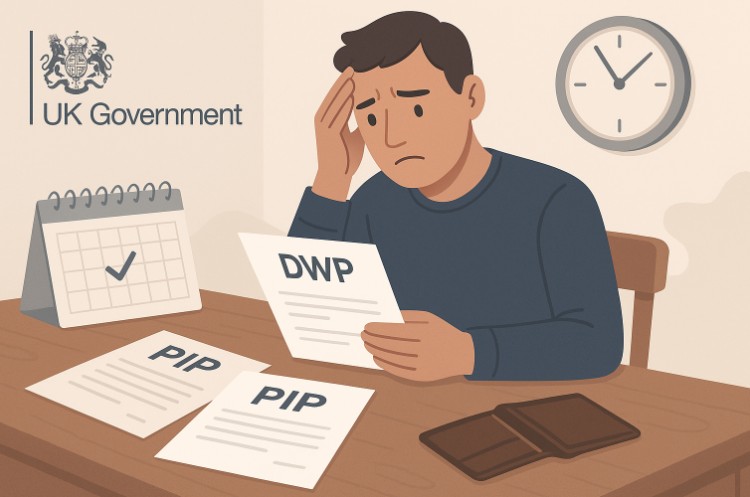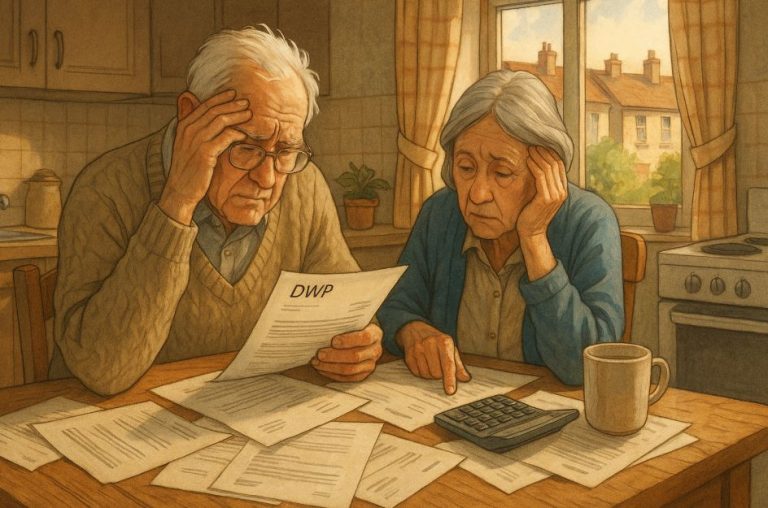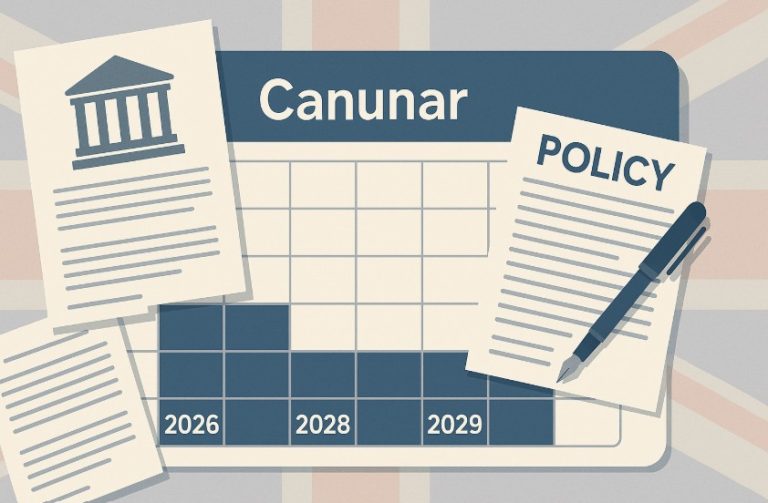In July 2025, the UK government released detailed data for the first time revealing how many non-UK nationals are claiming Universal Credit.
The figures have sparked political debate and raised public interest in how the welfare system is used by migrants.
As immigration remains a key topic in national conversations, the question of how many foreigners claim benefits in UK continues to influence policy and public opinion.
This article offers a thorough examination of the latest data, the types of migrants claiming benefits, and the broader implications for the UK welfare system.
What Do the Latest DWP Statistics Reveal About Migrants on Universal Credit?

The Department for Work and Pensions (DWP) released official statistics in July 2025, revealing for the first time how many foreign nationals in the UK are receiving Universal Credit.
The report showed that out of 7.9 million people claiming Universal Credit in June 2025, approximately 1.3 million were not UK or Irish citizens. This equates to 16.4% of all claimants.
The data covers migrants under different immigration categories including EU Settlement Scheme holders, those with Indefinite Leave to Remain (ILR), refugees, and others on temporary or humanitarian visas.
Here is a table summarising the figures by immigration status:
| Immigration Status | Percentage of Claimants | Estimated Count |
| EU Settlement Scheme | 9.7% | 770,000 |
| Indefinite Leave to Remain (non-EUSS) | 2.7% | 213,000 |
| Refugees | 1.5% | 118,500 |
| Limited Leave to Remain | 1.0% | 79,000 |
| Humanitarian Protection (Afghan, Ukraine) | 0.7% | 55,000 |
| Other or Unrecorded | 0.8% | 63,000 |
The remaining 83.6% of claimants are UK or Irish citizens, with UK citizens making up 99.8% of that group.
Who Qualifies for Universal Credit and What Does It Cover?
Universal Credit is a government welfare benefit aimed at individuals and households on low income or out of work.
It combines several legacy benefits into a single monthly payment. Migrants may be eligible to receive Universal Credit if they meet the necessary residency and immigration status requirements.
The benefit includes financial support for:
- Housing costs
- Dependent children
- Childcare expenses
- Disabilities or long-term illnesses
- Caring responsibilities
Foreign nationals are not automatically eligible. Eligibility depends on whether they have legal residence, such as settled status or refugee status.
Migrants under visas that include the condition “No Recourse to Public Funds” are not entitled to claim benefits until their status changes.
How Many Migrants Are on Universal Credit Compared to UK Citizens?

The most recent DWP figures reveal that while foreign nationals make up a significant portion of Universal Credit recipients, they remain the minority when compared to UK citizens.
Proportion of Foreign Nationals in the Welfare System
Out of the total 7.9 million Universal Credit claimants in the UK as of June 2025, 1.3 million were identified as non-UK and non-Irish nationals. This equates to 16.4% of all recipients.
The majority 83.6%, or approximately 6.6 million people are UK or Irish citizens. Among these, 99.8% are UK nationals, underlining that the largest group benefitting from Universal Credit are British-born citizens.
This distribution is significant because it challenges the commonly held perception that migrants dominate the welfare system. The data presents a more balanced view where migrants, while certainly present, do not form the bulk of the claimant base.
Historical Comparison and Trends
This is the first time the UK government has publicly released immigration status data linked to Universal Credit, providing a clearer picture of how the benefit is used.
Over time, the proportion of foreign-born claimants may change due to evolving immigration patterns, but the current figures provide a benchmark.
In the years preceding this report, most assessments of migrant welfare use relied on estimates or assumptions. This new transparency introduces an evidence-based foundation for future discussions on eligibility and policy reform.
Policy and Public Implications
The presence of 1.3 million foreign nationals in the UC system has prompted intense political debate. It is seen by some as a strain on public resources, while others argue that many of these individuals are legally entitled and contributing to the economy through low-wage work.
The discussion around “deservingness” is key here. Public discourse often weighs whether migrants have “earned” their welfare access through tax contributions, time spent in the UK, or legal status. These nuances are now central to how the welfare system is evaluated in relation to immigration.
Are Most Foreigners on Universal Credit Unemployed?
A deeper look into the employment data shows a complex picture. While a portion of foreign nationals on Universal Credit are unemployed, a significant number are actively working and still qualify due to low income.
Migrants in Low-Income Employment
The data from the DWP indicates that employment status among migrant claimants varies widely depending on immigration status and length of stay in the UK.
- Among claimants under the EU Settlement Scheme, 1% were in employment.
- By comparison, only 33% of UK and Irish nationals on Universal Credit were working.
- Across all UC recipients, fewer than 34% were employed.
- Refugees had the lowest employment rate at approximately 22%.
This reveals that many foreign claimants are part of the UK workforce but do not earn enough to support themselves or their families without additional help from the state. This includes sectors like hospitality, care, retail, and agriculture where wages are generally low and job stability is limited.
Barriers to Employment for Migrants
Some groups of migrants face specific challenges that hinder their ability to secure employment or maintain full-time work. These challenges include:
- Limited English language proficiency
- Lack of formal qualifications recognised in the UK
- Poor health or trauma, especially among refugees
- Legal restrictions on work for certain visa holders
- Discrimination in hiring practices
For instance, refugees and those on humanitarian protection visas often struggle to integrate into the job market quickly. Despite having legal rights to work, they face difficulties adapting to the UK employment landscape, and their unemployment rate reflects these barriers.
Working Migrants Still Relying on Universal Credit
It is important to understand that being employed does not automatically exclude someone from receiving Universal Credit. The system is designed to top up incomes for those earning below a certain threshold.
In high-cost areas like London or the South East, even full-time workers may qualify for UC if their income cannot cover basic living expenses such as rent, childcare, and food. Migrants in particular are often overrepresented in low-wage sectors, making them more reliant on income support.
This dependency raises important questions about wage levels, cost of living, and the intersection between employment and welfare, especially for migrant populations who may not have generational family support or savings to rely on.
Policy Sensitivity Around Migrant Work and Welfare
The fact that many migrants are both working and claiming benefits complicates the narrative around welfare abuse.
Critics who argue for cutting benefits to migrants may overlook the fact that these individuals are also tax contributors.
At the same time, supporters of migrant rights acknowledge the need for better integration policies to help migrants move towards full financial independence.
The data therefore supports a more nuanced view: not all migrants on Universal Credit are unemployed, and many are contributing to the economy even as they rely on welfare to make ends meet.
How Much Does the UK Spend on Supporting Foreigners Through Benefits?

Estimates suggest that the UK spends around £12 billion annually supporting migrants on Universal Credit.
This figure, cited by political figures like Nigel Farage, includes payments for housing, children, and other entitlements provided under UC.
The costs are driven by:
- The number of eligible migrant households
- The presence of children in these households
- Additional needs such as disabilities or long-term health issues
Though this £12 billion estimate is widely debated, it highlights the financial significance of welfare support for non-citizens.
It also reflects a system where many low-income working migrants qualify for top-up benefits, especially in high-cost living areas.
Do Refugees and Asylum Seekers Form a Significant Part of Welfare Recipients?
Contrary to popular perception, refugees and asylum seekers form a relatively small proportion of those claiming Universal Credit.
Refugees made up just 1.5% of total claimants, while those on humanitarian schemes such as the Afghan and Ukraine resettlement programmes accounted for only 0.7%.
Combined, these groups account for just over 2% of all UC recipients. These individuals often have legal protection status, allowing them to access benefits, but they may still face hurdles such as health issues or a lack of English proficiency that impact their ability to work.
Additionally, asylum seekers whose claims are pending are generally not entitled to Universal Credit. Instead, they receive limited support through the Asylum Support system administered by the Home Office.
How Do Ethnicity and Immigration Status Correlate With Benefit Claims?
While not all ethnic minorities are foreign nationals, there is some correlation between ethnicity and immigration history.
Migrant-heavy ethnic groups such as Asian and Black communities show varied representation among UC claimants.
As of June 2025, the ethnic composition of Universal Credit claimants was as follows:
| Ethnic Group | Percentage of Claimants |
| White | 76.4% |
| Asian/Asian British | 10.3% |
| Black/African/Caribbean/Black British | 6.0% |
| Mixed and Other Ethnicities | 7.3% |
This data shows that the majority of UC recipients are White, many of whom are British-born.
However, the share of Asian and other ethnic groups has increased slightly year-on-year, reflecting population shifts and changing immigration patterns.
Why Are Some Migrants Not Expected to Work While Receiving Benefits?

Not all Universal Credit claimants are required to seek employment. Around 42% fall into the ‘no work requirements’ category, which includes people who are:
- Long-term ill or disabled
- Caring for someone else
- Above working age or transitioning into retirement
- Receiving legacy benefits such as Employment and Support Allowance (ESA)
This category includes both citizens and migrants who are not currently fit for work or have exemptions from job-seeking obligations.
Some migrants, particularly those who are carers or have health problems, are among those exempted from work search conditions.
How Does Having Children Affect Benefit Claims Among Foreigners?
Household composition is one of the most important factors in determining Universal Credit entitlement. Among the 6.4 million households receiving UC in March 2025, about half had dependent children.
Migrant families, especially those with multiple children, are more likely to qualify for higher monthly payments due to childcare responsibilities and housing needs.
The following table illustrates how payments vary by household type:
| Household Type | Average Monthly Payment |
| Single Adult, No Children | £740 |
| Single Parent with Children | £1,180 |
| Couple with Children | £1,320 |
| Couple without Children | £880 |
Migrant families with dependent children are often among the most vulnerable groups in terms of income, and as such receive higher levels of support through Universal Credit.
What Political Reactions Have Followed the Release of These Statistics?
The release of immigration-specific benefit data has intensified political discussions. Nigel Farage, leader of Reform UK, argued that the figures demonstrate a failure of immigration policy and called for the complete removal of welfare access for migrants.
He stated that 1.3 million migrants receiving Universal Credit undermines the idea that immigration is economically beneficial.
Conservative politicians echoed similar concerns. Nick Timothy called for benefits to be reserved for British citizens only, while Chris Philp, Conservative Shadow Home Secretary, accused the Labour government of losing control of the welfare system.
He suggested that limiting access to public funds for recent immigrants would restore public trust and reduce welfare expenditure.
The Labour government, facing growing pressure, has not yet confirmed any new policy but is under scrutiny regarding its approach to welfare eligibility and immigration control.
What Changes Are Proposed in the UK Immigration White Paper?

In June 2025, the government released its latest immigration White Paper, setting out proposals aimed at reducing overall migration and the use of public resources by non-citizens.
The document suggests tightening settlement rules and limiting access to benefits for temporary and low-skilled migrants.
Key proposals include:
- Doubling the qualifying period for Indefinite Leave to Remain from five to ten years
- Increasing salary thresholds for Skilled Worker visas
- Cutting the post-study Graduate Route from two years to 18 months
- Ending the Health and Care Worker visa for new applicants
- Imposing stricter sponsorship responsibilities on employers
- Introducing faster asylum decision-making processes
- Considering offshore or repurposed housing for asylum seekers
These measures aim to reduce the number of migrants who become long-term benefit recipients and address the financial pressure on the welfare system.
The government also argues that these changes will restore public confidence in both immigration and welfare policy.
Conclusion
The data reveals that foreign nationals make up a notable minority of Universal Credit recipients, but not the majority.
While some groups, such as EU nationals, are largely working, others face greater barriers to employment.
The political and public response suggests that the UK is entering a phase of stricter welfare scrutiny and immigration control.
As reforms progress, the question is no longer just how many foreigners claim benefits in UK, but who should, under what conditions, and for how long.
Frequently Asked Questions
What percentage of UK benefits go to immigrants?
As of June 2025, around 16.4% of Universal Credit claimants are non-UK or non-Irish nationals.
Can non-citizens legally receive Universal Credit in the UK?
Yes, but only if they meet specific immigration status requirements, such as settled status or refugee protection.
Are migrants claiming benefits more than UK citizens?
No. The majority of UC claimants over 83% are UK or Irish nationals.
How many refugees receive public funds in the UK?
Approximately 1.5% of UC claimants are refugees, equating to around 118,500 individuals.
What’s the economic impact of benefits to migrants?
Estimates suggest £12 billion is spent annually supporting migrants on Universal Credit, but this figure is politically debated.
What benefits are migrants not allowed to claim?
Migrants with “No Recourse to Public Funds” (NRPF) cannot access most welfare benefits unless they gain permanent residency.
How do government reforms affect migrant welfare in 2025?
Proposed reforms aim to restrict access to benefits, lengthen settlement periods, and reduce asylum-related welfare costs.






